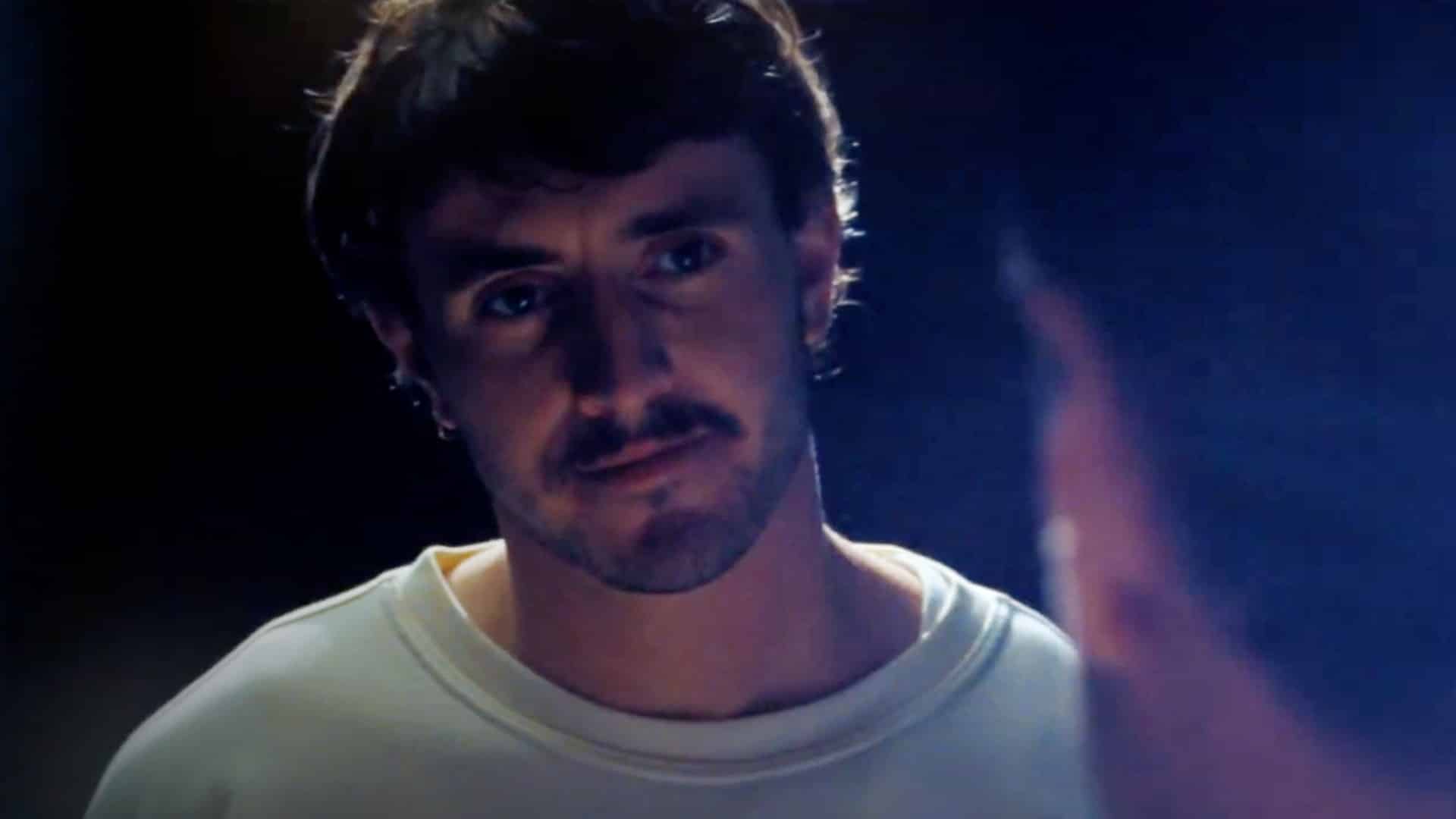




Dir: Andrew Haigh | Cast: Andrew Scott, Paul Mescal, Claire Foy, Jamie Bell | UK Drama 105′
Andrew Haigh’s new film All of Us Strangers may well be this British director’s most personal and accomplished film so far. Based on a Japanese novel The Discarnates by Taichi Yamada (1934-2023) which has been filmed in 1988 by Nobuhiko Obayashi (1938 -2020) the adaptations reveal how a remarkable literary source material can provide two fertile parallel viewpoints.
The Haigh adaptation is focused on Adam, a script writer, played by Andrew Scott, suffering from not only writers’ block but the crushing weight of a lonely unhappy life as a gay man. What has caused this is gradually revealed through subconscious thoughts about the loss of his parents. These are sublimely visualised by Haigh as Adam tentatively embarks on what is his first adult real-life relationship with Harry, another lonely gay man.
Haigh reveals care and sensitivity with actors, bringing out the best in Paul Mescal (as Harry) and Jaime Bell and Claire Foy (as parents) while the core of the film rests on a remarkable central performance by Andrew Scott. He plays a loner and is in tune with Haigh’s theatrical sense of interior mise en scene that sensitively uses framing of space to capture Adam’s viewpoint. Credit here is due to the tight flawless framing of Jaimie Ramsay’s beautifully lit and textured camerawork along with the original linked-in music and sound of Emilie Levenaise-Farrouch.
Scott and Mescal are completely at ease with each other and this is deeply felt in a sequence where the two men stroke each other’s naked thigh and knees which is erotic without being any more explicit. Likewise, the way Haigh surrounds and closely follows Scott during an eventful night in a night club, as his head swims to the sound of The Power of Love by Frankie Goes to Hollywood, reveals a filmmaker drawing from personal experience. The handling of a mother’s suppressed homophobia and the hint of gay cruising when first encountering his father are remarkable scenes capturing nuanced undercurrents. There is only one bedtime sequence involving the parents and son that feels uneasy.
Profound connections involving the providence of love and the need for redemption are at the heart of the film, separating time zones with the idea that there is a time to love, but also a time to die. The Obayashi drama has sensitive family relationship sequences involving a man and his deceased parents and a moody relationship with a female neighbour, although the film changes course by introducing a supernatural element involving zombie horrors feeding off a life force. This is finely tuned into Japanese culture and might explain why Obayashi’s version of The Discarnates is less well known in the west. The Haigh adaptation is more romantic and there is an uncanny feeling of spirituality also found in the work of Frank Borzage, another great romantic. Haigh appears to reflect that for his two damaged men it is only through love and adversity that souls are made great
All of Us Strangers builds on Haigh’s previous films Greek Pete, Lean on Pete, Looking, 45 Years and The North Water with a similar feeling for the interior spaces of homes, rooms, a ranch and the confined space of a boat stranded in ice. London at night in All of Us Strangers feels both alienating and melancholy, with the magical lights of cranes and high-rise buildings on the horizon becoming confined and darkened spaces for Haigh’s s lost souls. The daytime scenes when Adam wanders through the suburbia of his youth in search of his deceased parents have different film grain and light aiding the director’s ability to use space to explore complex emotional relationships.
The film’s final sequence brings to a full circle how ownership of our past can be grasped, although this ethereal finale has drawn criticism and may well be divisive. The audaciousness of both the finale and the fluid anti-realist thread flowing through the film suggests a gentle reminder of the daring of Powell and Pressburger as there are Matters Of Life and Death to be discovered at the heart of All of Us Strangers.
This is a triumphantly beautiful film that after more than one viewing suggests British film culture may have the heir apparent to the late great lamented Terence Davies. Haigh has the earlier filmmaker’s interest and ability with providing literary adaptations and resonance drawn from personal experience. We may well be witnessing a new chapter in the growth of gay related British cinema to be rightly proud of. Peter Herbert
PETER HERBERT is curator manager at THE ARTS PROJECT
NOW ON RELEASE IN UK CINEMAS